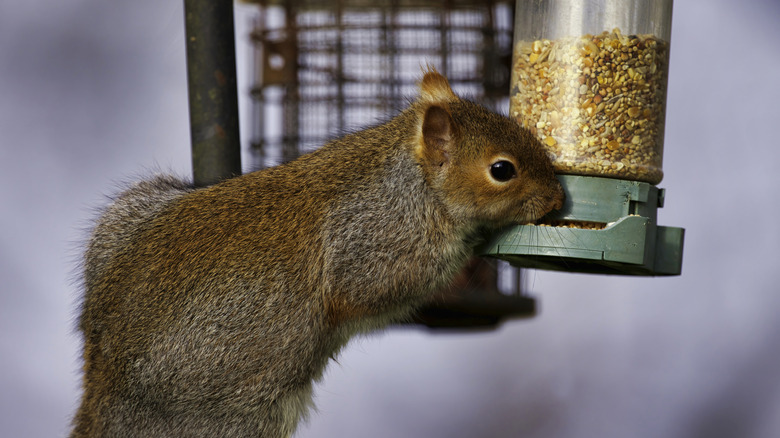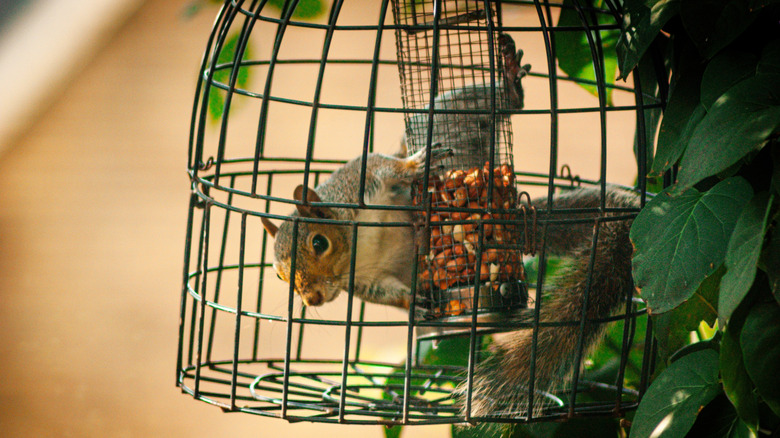The Downsides To Squirrel-Proof Bird Feeders You'll Wish You Knew Before Buying
There are many methods that try to prevent squirrels from being food-stealing pests, and squirrel-proof bird feeders seem like the perfect solution to backyard feeding frustrations. However, there are often unexpected drawbacks to these products that you may not initially be aware of. These feeders typically use weight-sensitive mechanisms, specific cage designs, or spinning mechanics that deter squirrels while allowing birds access. While these features can be helpful in the beginning, a determined squirrel will eventually defeat them through trial and error. The weight-activated models often close too easily, which could deter larger birds like cardinals or jays. Squirrels can also get around this design by hanging from the edges of a nearby branch, making the whole mechanism pointless. Cage-style feeders use smaller openings in a protective wire shell that also tend to block larger birds from reaching the food, limiting the variety that will visit your yard.
Some cheaper models of squirrel-proof feeders use lightweight plastic that squirrels can chew through over time. This material can also degrade through constant sun exposure. Metal components can rust in rainy climates without regular maintenance. Even top-rated squirrel-proof bird feeders with chew-proof metals and reinforced perches often require frequent adjustments and cleaning to maintain their effectiveness. The constant battle against determined squirrels can lead to a lot of wear and tear on your equipment. Additionally, complex mechanisms can make feeders more difficult to clean and refill than standard models.
The hidden problems of squirrel-proof feeders & better alternatives
Beyond mechanical issues, squirrel-proof feeders create a few unintentional consequences for your yard's ecosystem. The constant stress of being denied access to easily visible food can drive squirrels to become more aggressive and destructive in their behavior. They may damage nearby structures or dig up your garden in frustration. Some models inadvertently create hazards for the birds themselves. For example, they could get caught up in the feeder's moving parts, or even be chased off if a determined squirrel decides to knock down the entire feeder just to get at the food. Limited seed access can also cause aggressive competition among birds, with dominant species taking over and monopolizing the supply.
Instead of spending a lot of money on specialized equipment, you may want to try some overlooked solutions to keeping squirrels out of your bird feeder. Strategic placement remains the simplest, most cost-effective choice. Hanging your bird feeder at least 10 feet from trees and 5 feet above ground on smooth poles with baffles will prevent most squirrel access. Offering squirrels their own feeding station stocked with less expensive corn can divert their attention, as easy-to-get food will keep them satisfied. Using bird-friendly seeds that squirrels don't enjoy, like safflower or nyjer, also reduces the competition naturally. All of these methods are more cost-effective and require less maintenance than buying a squirrel-proof feeder. They'll keep a harmonious atmosphere in your backyard for all types of wildlife.

